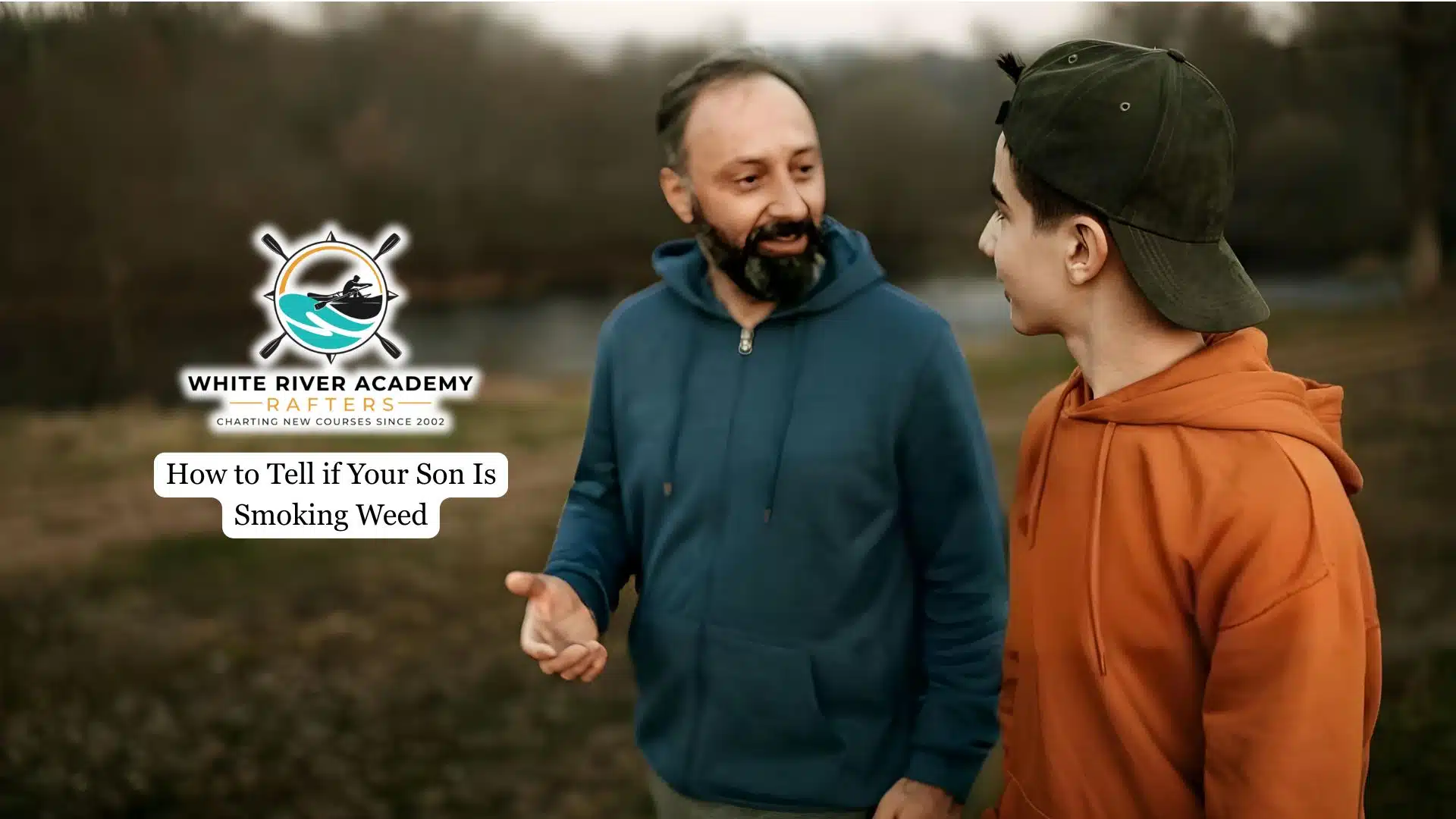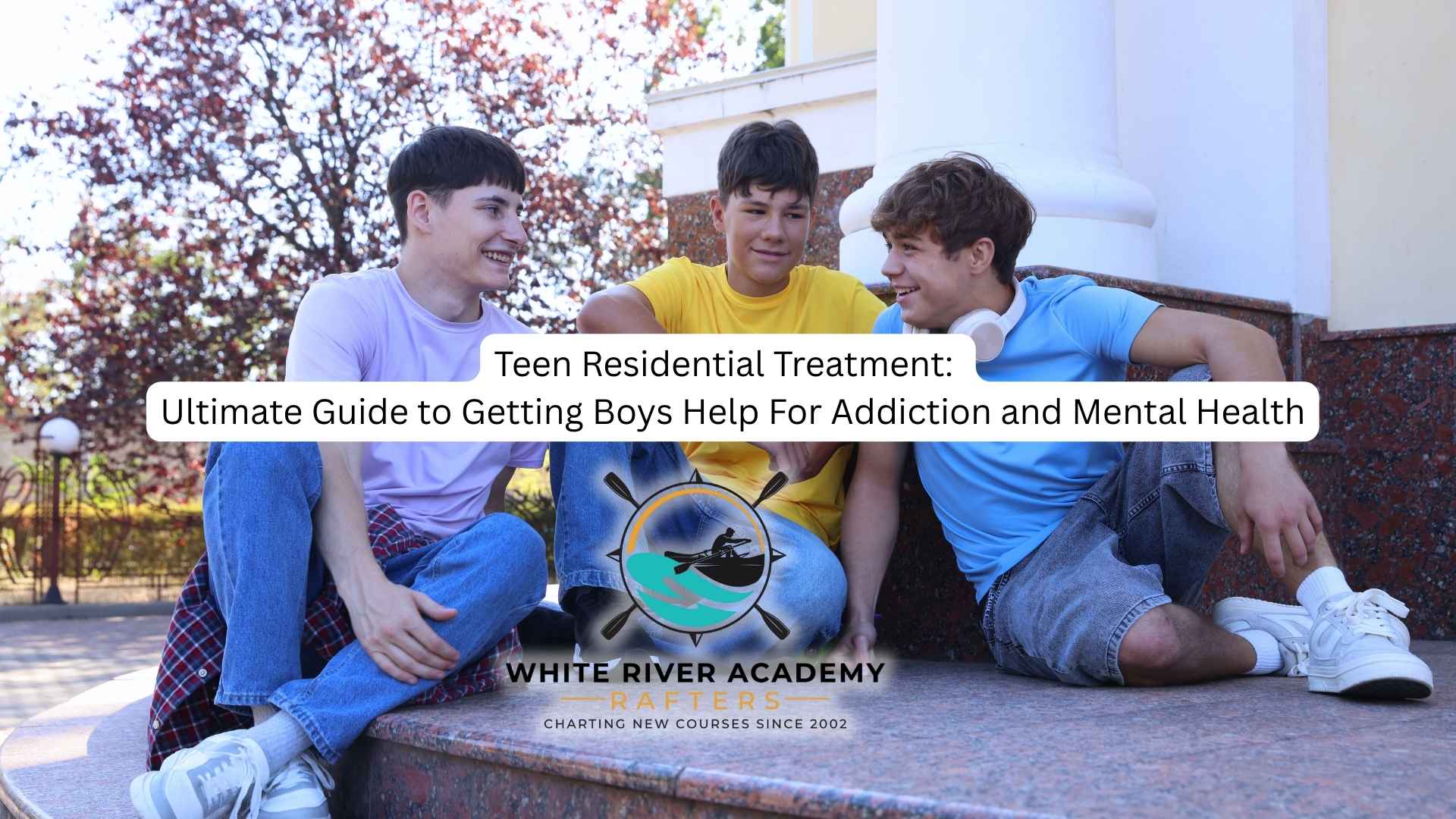Marijuana use among teenagers is increasingly common and can pose significant challenges for parents like you. Recognizing the signs that your son might be smoking weed is crucial to addressing the issue early and providing the proper support.
This article explores how to identify marijuana use in teens, understand its effects, and take preventive and supportive measures.
Why Do Teens Use Marijuana?
Marijuana, also known as weed, pot, or cannabis, is one of the most common addictive drugs used by teens. Its accessibility has increased due to changes in the legal landscape and the perception that it is less harmful than other substances.
Your teenage son might experiment with marijuana because of peer pressure or curiosity, driving many teens to test boundaries, with marijuana often being their first illicit drug. Teens are particularly vulnerable to peer pressure due to their developmental need for social acceptance and a sense of belonging. When peers use substances or create environments where drug and alcohol use is normalized, teens are more likely to engage in similar behaviors to fit in or gain approval.
The rising potency of modern cannabis products can make this experimentation more appealing—and riskier—than in previous years.
You might also notice your teen using slang like “420,” “dabbing,” or “shatter,” which often points to active involvement or interest in marijuana culture.
While this substance has recognized medical benefits when used appropriately, recreational use in teens can negatively impact brain development, memory, coordination, judgment, and emotional health.
Our specialized marijuana addiction treatment program for adolescent boys combines therapeutic guidance with engaging in real-world activities to help teens break unhealthy habits and develop healthier coping skills. We empower teens to overcome their weed addiction and move forward with clarity, purpose, and renewed focus on their goals and relationships.
Physical Signs Your Son Might Be Smoking Weed
Even if your son tries to hide it, marijuana use often leaves behind noticeable clues. One of the earliest indicators of marijuana use is physical signs, which include:
- Red or bloodshot eyes: Marijuana causes blood vessels in the eyes to expand, leading to redness.
- Distinctive smell: Marijuana has a strong, musky odor often likened to that of a skunk, which can cling to clothing and hair.
- Delayed reaction times and impaired coordination: Users may appear clumsy or have difficulty with balance and motor skills.
- Increased appetite (“the munchies “): A sudden and intense hunger is common shortly after use.
- Dry mouth and slurred speech: These are also common physical symptoms.
- Frequent tiredness or lethargy: Marijuana can cause users to appear unusually sleepy or lazy.
Behavioral Changes Indicative of Marijuana Use
Marijuana affects mood and behavior, which can be a red flag for any parent:
- Mood swings and irritability: Teens may experience unusual anxiety and paranoia or become easily agitated.
- Loss of motivation: A decline in interest in school, hobbies, or social activities is a common symptom of this condition.
- Changes in personality: Becoming secretive, withdrawn, unusually sullen, or hostile can indicate drug use.
- Poor academic performance: Difficulty focusing, memory problems, and declining grades may result from regular use.
- Risky behaviors and changing friend groups: Teens might engage in dangerous activities or associate with new peer groups involved in substance use.
Marijuana Paraphernalia to Watch For
While your son might try to keep his habits hidden, marijuana paraphernalia often leaves clues you can spot if you know what to look for. Marijuana consumption involves various tools and accessories. You should be vigilant for:
- Hand pipes and water pipes (bongs)
- Joints or blunts rolled like cigarettes.
- Vaporizers and vape pens
- Edibles such as brownies, cookies, or candies infused with THC
- Rolling papers and small containers for storing marijuana
Signs of Marijuana Dependency and Addiction
While many teens experiment with marijuana, some develop cannabis use disorders characterized by:
- Using more marijuana than intended or for more extended periods
- Inability to cut down despite wanting to stop
- Cravings and withdrawal symptoms such as irritability, anxiety, mood changes, sleep disturbances, and appetite changes when not used.
- Continued use despite adverse effects like problems at school, work, or in relationships may persist.
- Social isolation and neglect of responsibilities. Addiction often leads to withdrawal from family and friends and decreased performance in daily activities

What to Do If You Suspect Your Son is Smoking Weed
If you suspect your son is using marijuana, consider having an open and honest conversation with him. Approach the topic calmly and without judgment. Ask direct questions about drug use and listen carefully.
Keep track of physical, behavioral, and academic changes to provide clear examples during discussions or professional consultations.
You should set clear expectations and boundaries by communicating the consequences of drug use and supporting healthy alternatives. Also, provide emotional support to your son. Let him know that you care and you want to help him through challenges without condemnation.
Most importantly, seek professional help from healthcare providers or addiction specialists for assessment and guidance. Early intervention can prevent escalation to addiction.
Preventive Measures and Support Strategies
- Educate about risks: Share factual information about marijuana’s effects on the developing brain and overall health.
- Encourage healthy activities: Promote involvement in sports, arts, or clubs to build self-esteem and occupy time productively.
- Foster strong family relationships: Maintain open communication, trust, and regular family time to reduce the appeal of drug use.
- Monitor social circles: Be aware of your son’s friends and social activities to identify potential negative influences early.
- Model responsible behavior: Parents’ attitudes toward substances can influence teens’ choices.
- Consider counseling or support groups: Professional therapy or peer support can help teens develop coping skills and resist peer pressure.
Final Thoughts from White River Academy
If you think your son might be smoking weed, trust your instincts and look for both physical and behavioral signs, as well as any hidden paraphernalia. At White River Academy, we offer a specialized residential treatment program dedicated to adolescent boys who are struggling with substance addiction. Our highly experienced team works closely with families to provide personalized care that fosters healing, personal discipline, and lasting recovery support. We also emphasize academic progress, offering accredited courses that allow students to earn credits and work toward achieving a diploma while undergoing treatment.




